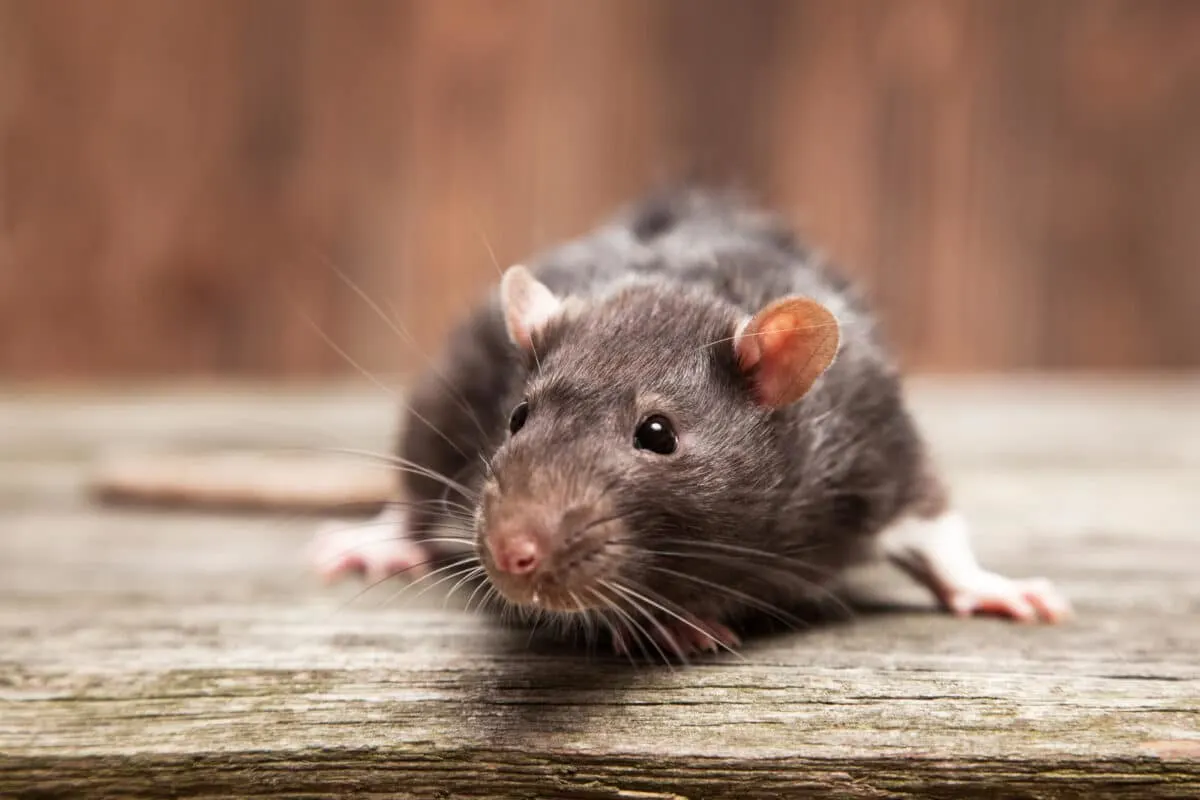Soon you will be an expert on rat poop. Let’s go!
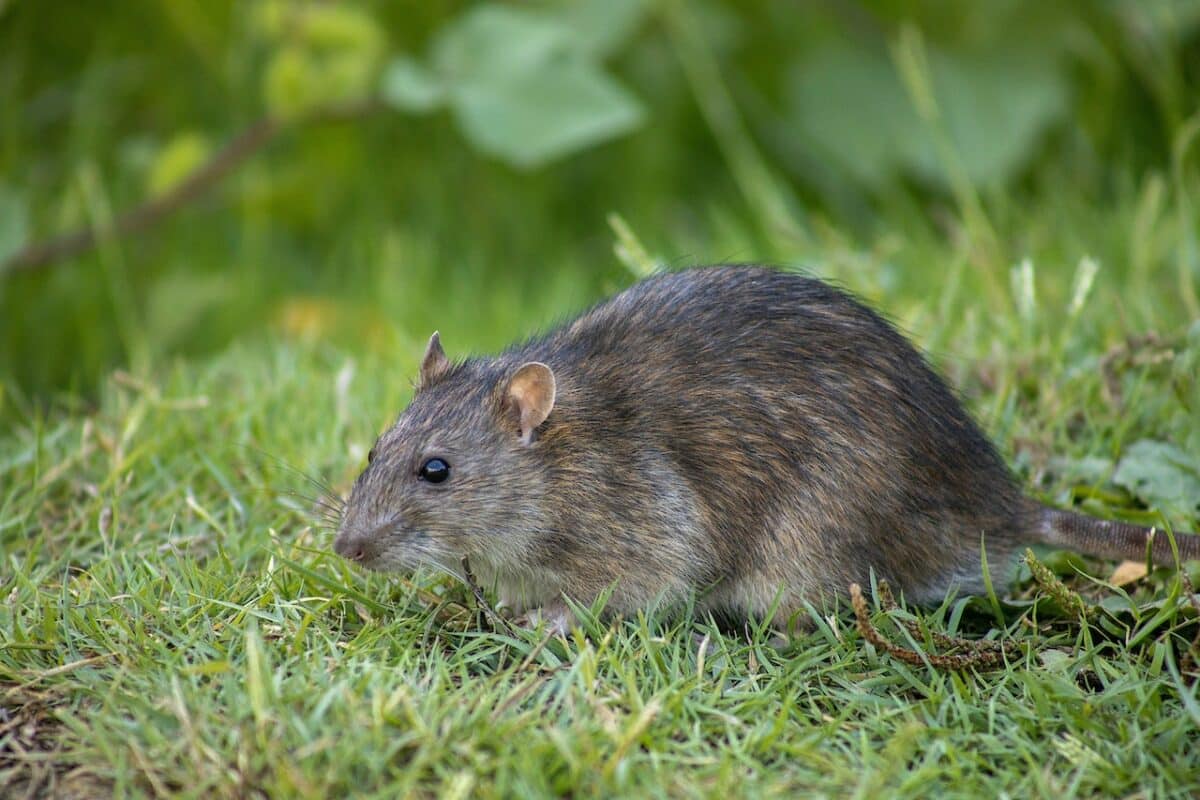
Are you ready for some truly gross but important information? Do you know what might be lurking in the corners of your home, ready to spread disease and destruction? It’s rat poop!
Yes, you heard that right. Rat poop may seem like a minor inconvenience, but it’s actually a serious health hazard that could put you and your family at risk.
In this article, we’re going to delve deep into the world of rat droppings, exploring their appearance, dangers, and how to identify and deal with them. Get ready to learn everything you (n)ever wanted to know about rat poop!
The Importance of Understanding Rat Poop (why you should care)
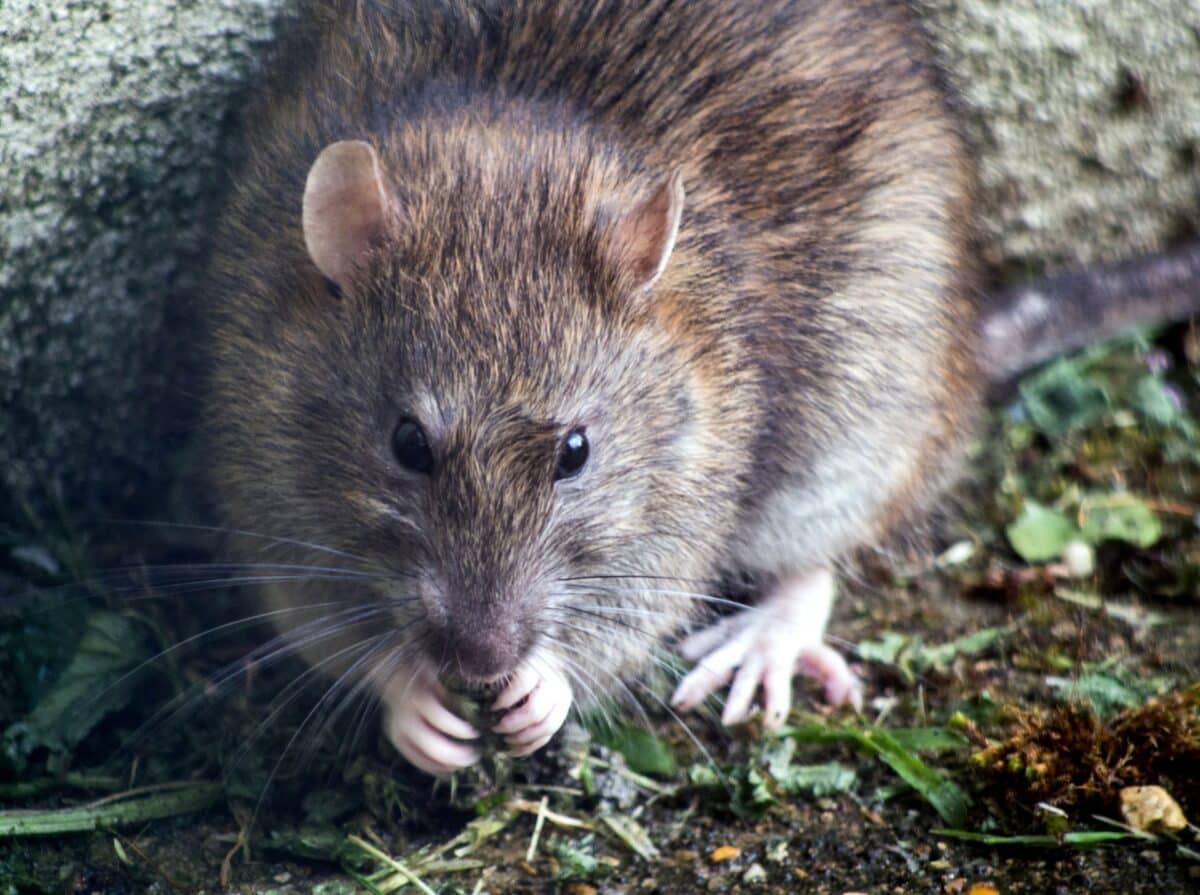
Understanding rat poop may seem like an unsavory topic, but it’s a crucial one when it comes to keeping your home and family safe. Rat droppings are not only unpleasant to look at and smell, but they can also carry harmful diseases and bacteria.
Imagine a small, furry creature scurrying across your kitchen counter, leaving behind tiny, dark pellets that are hardly visible to the naked eye. These pellets are an indication of the presence of rats.
The thought of these pests crawling around your living space is enough to make your skin crawl and your stomach churn. But it’s not just the physical disgust that comes with rat droppings.
The consequences of ignoring or mishandling them can be dire.
Here are some reasons why understanding rat poop is crucial:
#1 Health Risks
Rat droppings can transmit a variety of illnesses, including Hantavirus, Salmonella, and Leptospirosis. These diseases can cause severe symptoms such as fever, muscle aches, vomiting, and even organ failure in the worst of cases. To prevent the spread of these dangerous diseases, it’s important to be able to identify rat droppings and take action immediately.
#2 Pest Infestation
Rat droppings are a clear indication of a rat infestation. If you ignore the droppings, you could be inviting more pests into your home and risking further contamination.
#3 Property Damage
Rats can gnaw on wires and wooden structures, causing damage to your property and creating potential fire hazards.
#4 Foul Odor
Rat droppings emit a strong, pungent odor that can be unpleasant and difficult to eliminate.
Appearance and Characteristics

Rat poop may seem small and insignificant, but it’s actually quite fascinating. Did you know that the shape and size of rat droppings can vary depending on the species of rat?
For example, Norway rats produce droppings that are larger and more oval-shaped, while roof rats produce smaller and more tapered droppings. Regardless of the species, though, rat droppings are typically dark brown or black and have a shiny surface due to the oils in the rat’s fur.
Size and Shape
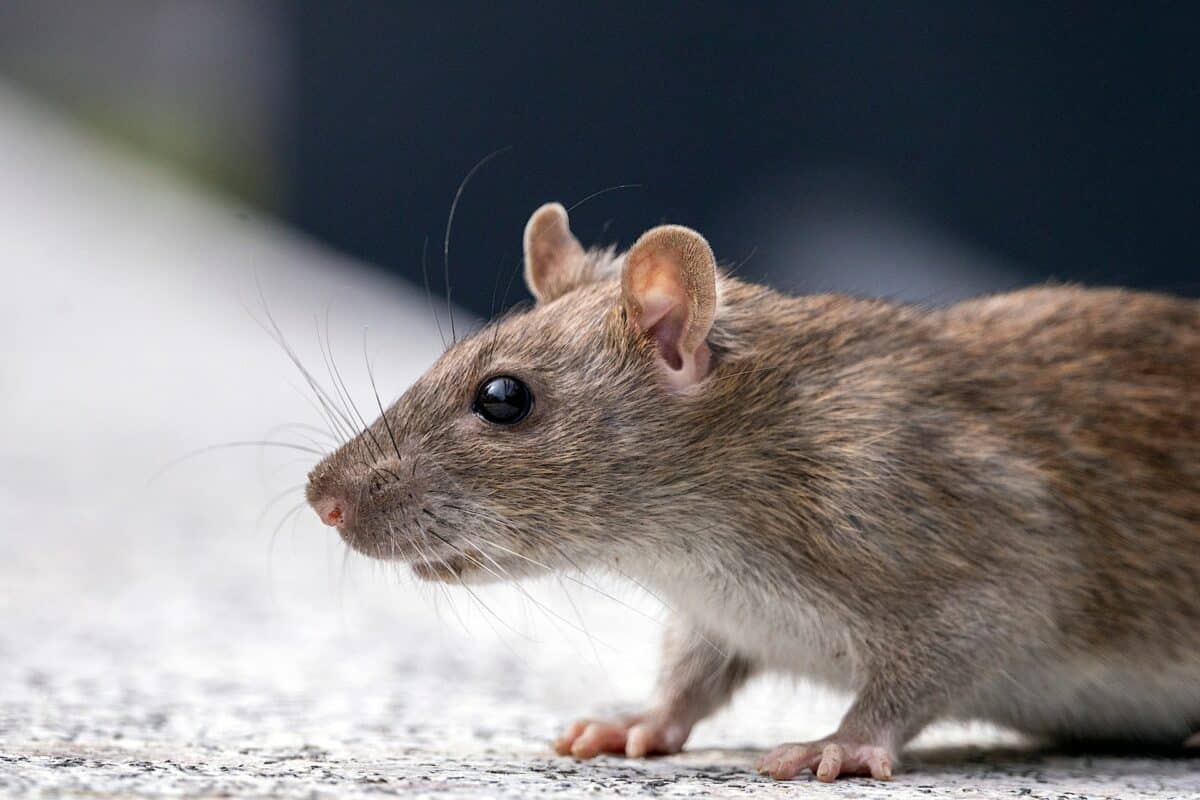
While the size and shape of rat poop may not be a topic of conversation at the dinner table, it’s still worth noting some interesting facts about them.
Rat poop, also known as “scat,” comes in all shapes and sizes, ranging from tiny pellets to larger, elongated nuggets. Imagine little brown candies that you definitely don’t want to snack on!
They’re usually dark brown in color and can vary in texture, depending on what the rats have been eating.
If you’re lucky (or unlucky?) enough to find a larger deposit of rat poop, you might notice that it looks like a string of miniature sausages, all lined up and ready to gross you out. But fear not; with the right tools and a strong stomach, you can clean up this mess and make your home safe again.
If you’re feeling particularly adventurous, you could even turn this unsavory situation into a game. Who can find the most rat poop in the house? Which room has the most impressive collection of scat? Just don’t forget to wear gloves and a face mask, because as gross as it may be, rat poop can also carry dangerous diseases.
In the end, though, it’s important to remember that rat poop is no laughing matter. It’s a serious health hazard that needs to be dealt with promptly and efficiently. So take a deep breath, muster your courage, and face the poop head-on.
Your family’s health and safety depend on it!
What is the Difference Between Rat Poop and Other Animal Droppings
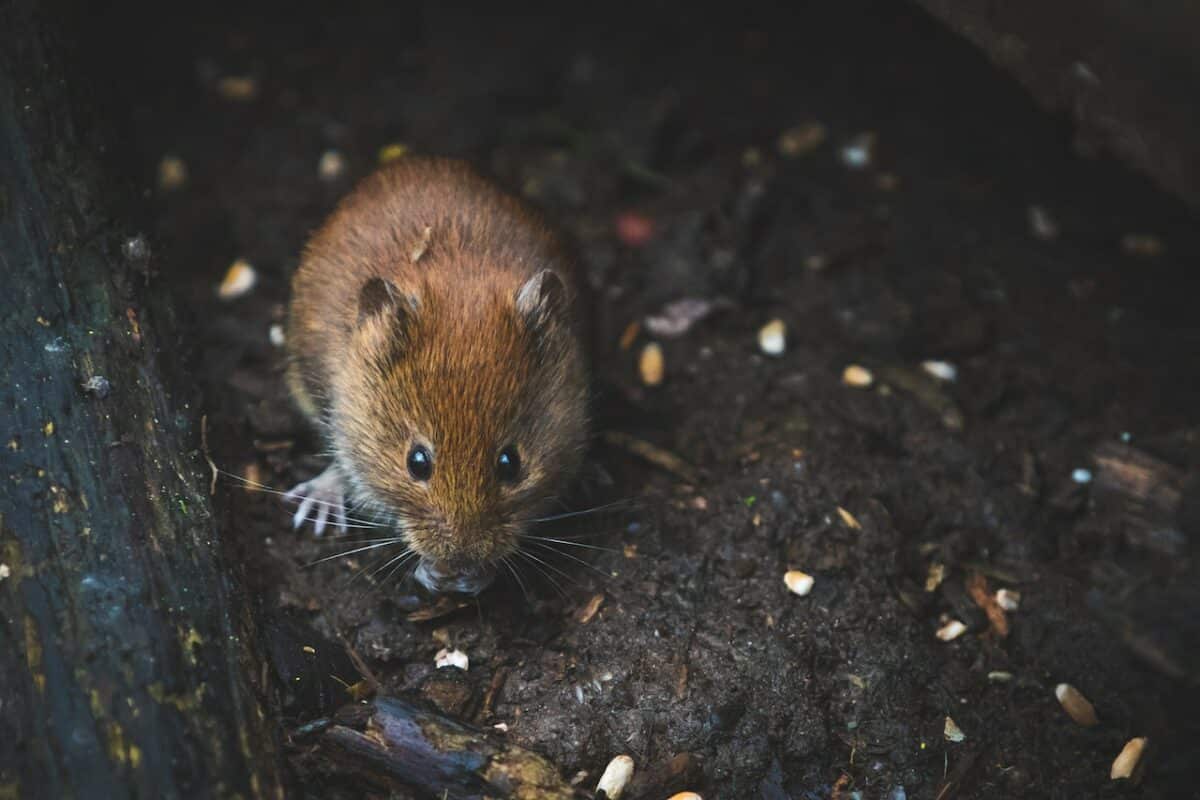
When it comes to identifying animal droppings, it can be tough to know where to start. But with a little bit of knowledge, you can learn to tell the difference between rat poop and other types of animal droppings.
Here are different types of animal droppings and how to tell them apart from rat poop:
#1 Rat Poop vs. Mouse Poop
Rats and mice are both rodents and may have similar-looking droppings, but there are some key differences that allow you to tell them apart. Mouse poop is usually smaller than rat poop and has a smoother surface. Rat poop is longer and has pointed ends with a slightly curved shape.
Rat poop is also often found in larger quantities than mouse poop, as rats tend to produce more waste than mice.
#2 Squirrel Poop vs. Rat Poop
Squirrels love nuts, and their droppings can often be found in places where they’ve been feeding. Squirrel poop is usually smaller than rat poop and is more rounded in shape.
In contrast, rat poop is elongated and pointed at both ends. Squirrel poop also tends to be lighter in color, while rat poop is typically dark brown or black.
#3 Rabbit Poop vs. Rat Poop
Rabbit poop is a common sight in gardens and other outdoor areas. Rabbit poop is usually smaller than rat poop and has a more uniform shape. It’s also usually lighter in color and has a softer, moister texture than rat poop, which is dry and crumbly.
#4 Deer Poop vs. Rat Poop
Which is Which? Deer poop is much larger than rat poop and has a more oval shape. It’s also usually lighter in color and has a smoother surface than rat poop, which is dark and textured.
#5 Bat Poop vs. Rat Poop
Bat poop, also known as guano, is a bit different from other types of animal droppings. It’s often found in piles or clusters and has a distinctive shape, with one end flattened and the other end pointed.
In contrast, rat poop is elongated and pointed at both ends, with a slightly curved shape. Bat poop is also usually lighter in color and has a softer texture than rat poop, which is dry and crumbly. Bat poop may also have a strong odor.
What are The Health Risks Associated with Rat Poop?
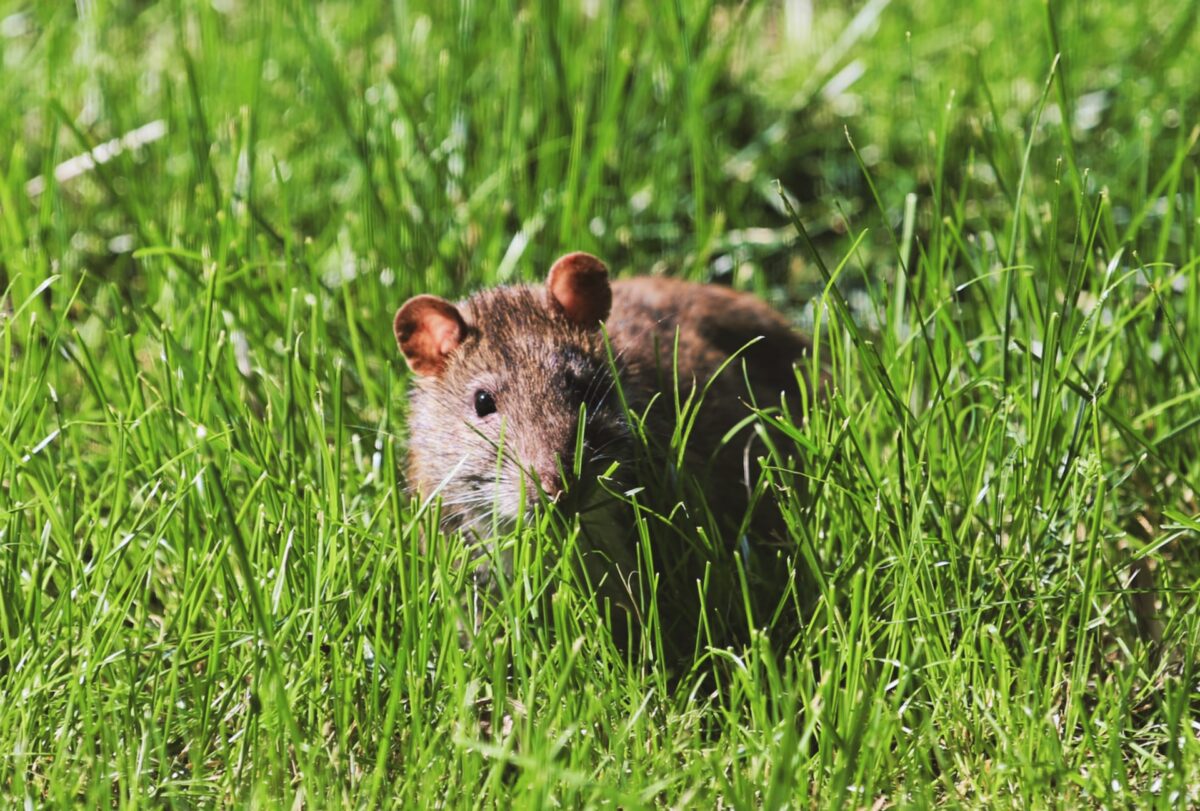
Rat droppings are more than just an unpleasant sight. As previously stated, they can also pose serious health risks – let’s take a closer look at the potential health hazards they might pose:
- Allergic reactions
Rat droppings can trigger allergic reactions in some people, particularly those with respiratory issues. Inhaling dust from dried rat feces or urine can cause sneezing, coughing, wheezing, and other respiratory symptoms.
- Bacterial infections
Rat feces can carry harmful bacteria that can cause a range of infections, including salmonellosis and leptospirosis. These infections can cause flu-like symptoms such as fever, chills, headache, and muscle aches.
- Viral infections
Hantavirus, a rare but potentially fatal disease, can be spread through rat feces. This virus triggers flu-like symptoms such as muscle aches, coughing, fever, and chills.
How Does Rat Poop Transmit Diseases?

Rat poop can transmit diseases in various ways, including:
- Inhalation
When dried rat feces are disturbed, the dust can become airborne and be inhaled, allowing harmful bacteria and viruses to enter your lungs.
- Contact
Rat droppings can contaminate surfaces such as countertops, floors, and food. Touching these contaminated surfaces can allow the bacteria and viruses to transfer to your hands and from there to your mouth, nose, or eyes.
- Water
Rat urine can contaminate water sources, such as rivers or lakes, and can cause infections in humans and other animals that drink from these sources.
Examples of Diseases Transmitted by Rat Poop
Hantavirus
This rare but potentially deadly disease is transmitted by breathing in dust from dried rat feces or urine. Symptoms of Hantavirus Pulmonary Syndrome (HPS) include fever, chills, muscle aches, and coughing.
Salmonellosis
This bacterial infection can cause diarrhea, fever, and abdominal cramps. It is transmitted by ingesting food or water contaminated with rat feces.
Leptospirosis
This bacterial infection can cause flu-like symptoms, including fever, headache, and muscle aches. It is transmitted through contact with rat urine or rat urine-contaminated water.
E. coli
This bacterial infection can cause severe diarrhea and abdominal cramps. It is transmitted through ingesting water or food contaminated with rat feces.
How to Prevent Exposure to Rat Droppings
#1 Keep your living and working spaces clean and clutter-free
Rats are attracted to clutter and garbage, so it’s important to keep your surroundings clean and tidy. This can reduce the likelihood of rat infestations in your home or workplace.
#2 Store food in airtight containers
Rats are notorious for their love of food, so storing your food in sealed containers can help keep them away. This can also prevent contamination of food from rat droppings.
#3 Seal up cracks and gaps in your home or workplace
Rats can enter buildings through tiny openings, so it’s important to seal up any gaps or cracks in your home or workplace’s foundation or walls to prevent them from gaining entry.
#4 Use traps or poison
If you suspect you have a rat infestation, using traps or poison can be an effective way to get rid of them. However, it’s important to use these methods safely and according to their instructions to avoid accidental exposure.
#5 Wear protective gear
If you must clean up rat droppings, it’s important to wear protective gear such as gloves and a mask to prevent inhalation or direct contact with the droppings.
By taking these preventive measures, you can reduce the risk of exposure to rat droppings and the health hazards they pose. Remember, if you suspect you have been exposed to rat droppings and are showing any of the sypmtoms preiously mentioned, seek medical attention immediately.
7 Signs of a Rat Infestation
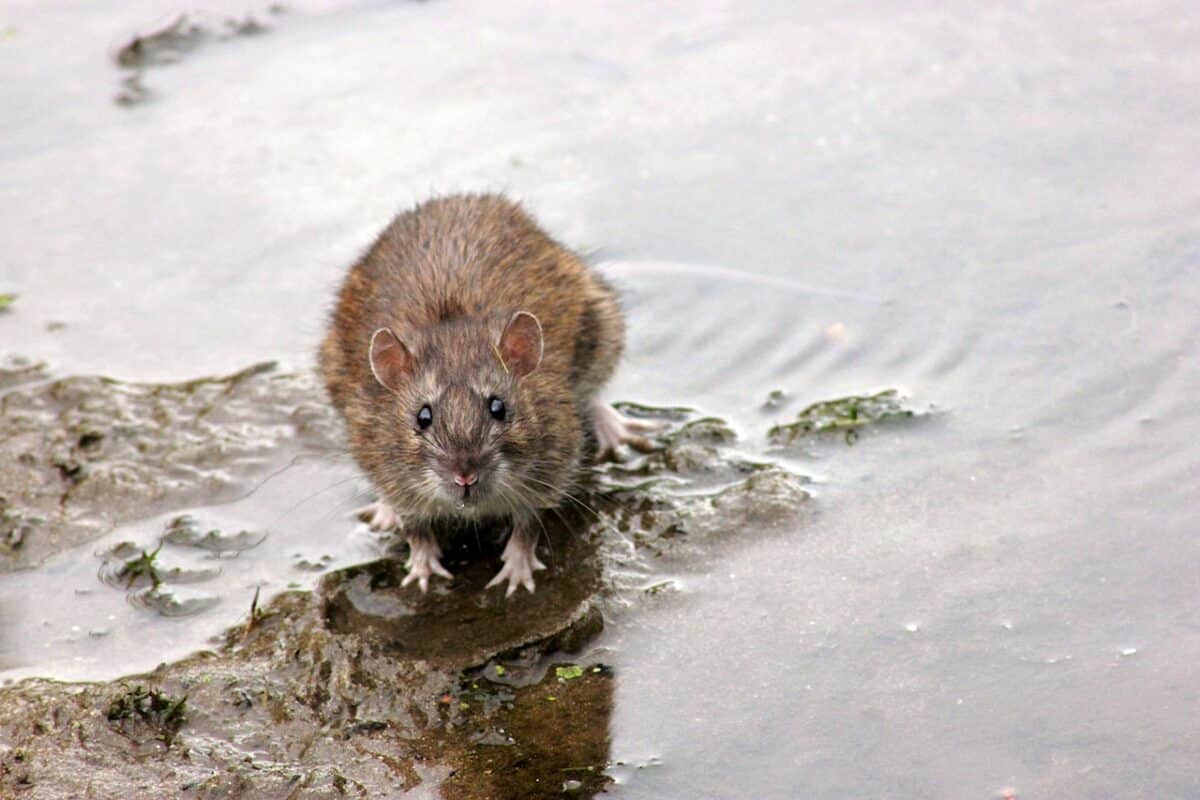
Are you concerned that rats may have taken up residence in your home or workplace? Here are the top 7 signs to look out for that may indicate a rat infestation:
- Rat droppings: Finding small, pellet-shaped droppings in your home or workplace is a clear sign that rats are present.
- Gnaw marks: Rats have a strong instinct to gnaw, and they will chew through almost anything, including wood, plastic, and even electrical wiring.
- Grease marks: Rats leave greasy marks on surfaces they frequently travel over, such as walls, floors, and baseboards.
- Unpleasant odors: Rats have a distinctive, musky odor that can be detected in areas where they have been active.
- Scratching or scurrying sounds: If you hear scratching or scurrying sounds coming from walls, ceilings, or floors, it may be a sign of rats.
- Nests or burrows: Rats will build nests out of shredded materials such as paper, fabric, and insulation. They will also dig burrows in soil, under buildings, or in walls.
- Sightings: Finally, if you actually see rats in your home or workplace, you can be certain that you have an infestation that needs to be dealt with.
If you notice any of these signs, it’s important to take action to eliminate the rat infestation as soon as possible, as rats can cause damage to property, spread disease, and pose a danger to the health and safety of people and pets.
6 Reasons Why You Should Call In a Pro Exterminator

- They have the knowledge and experience to tackle any pest problem
A pro exterminator has seen it all and knows how to deal with any pest infestation, no matter how big or small.
- They can identify the type of pest and provide the most effective treatment
A professional knows the ins and outs of different types of pests (including types of rats) and can quickly identify what you’re dealing with. They can also use the most effective and safe methods to eradicate the problem.
- They can prevent future infestations
A pro exterminator doesn’t just eliminate pests; they also take measures to prevent them from returning. They will give you some pearls of wisdom on how to keep pests away for good.
- They have access to specialized tools and equipment
Professional exterminators have access to specialized tools and equipment that the average Joe doesn’t have. They can use state-of-the-art technology to get rid of pests once and for all. An exterminator has all the bells and whistles when it comes to pest control.
- They can save you time and money
While it may seem tempting to try and handle a pest problem yourself, hiring a professional can actually save you time and money in the long run. A pro knows how to eliminate the problem quickly and efficiently, without causing further damage or wasting resources.
- They provide peace of mind
Knowing that your pest problem is being handled by a professional can provide peace of mind and alleviate the stress and anxiety that often comes with a pest infestation. They can put your mind at ease and leave you feeling as happy as a clam.
So, if you’re dealing with a pest problem, don’t be afraid to call in the pros.
Factors to Consider When Choosing an Exterminator
So, you’ve got a pest problem, and you’re thinking about calling in an exterminator. That’s a wise decision! But before you pick up the phone and hire the first person you find, there are a few things to consider.
Here are some factors to keep in mind when choosing an exterminator and a handy checklist of questions to ask:
- Experience
You want to make sure you’re hiring someone with plenty of experience in dealing with your particular pest problem. After all, you don’t want a rookie on the job.
- Reputation
Do your research and find out what other customers have to say about the exterminator you’re considering. Check online reviews and ask for references.
- License and Insurance
Make sure the exterminator you hire is licensed and insured. This will give you peace of mind knowing that you’re dealing with a professional who is qualified and covered in case of any accidents or damages.
- Methods and Products Used
Ask about the methods and products the exterminator will use to deal with your pest problem. Are they safe for your family and pets? Will they have any negative impact on the environment?
- Price
Of course, you want to make sure you’re getting a fair price for the services you’re receiving. But don’t be too quick to go with the cheapest option. Remember, you get what you pay for!
- Communication
A good exterminator will keep you informed throughout the process and answer any questions you have. Make sure you feel comfortable communicating with them.
Checklist of Questions to Ask
- What is your experience in dealing with my particular pest problem?
- Can you provide references or customer reviews?
- Are you licensed and insured?
- What methods and products will you use to deal with the pests?
- Are the methods and products safe for my family and pets?
- Will the methods and products have any negative impact on the environment?
- How much will the services cost?
- How long will it take to resolve the pest problem?
- How will you communicate with me throughout the process?
- Do you offer any guarantees or warranties on your services?
Rounding off
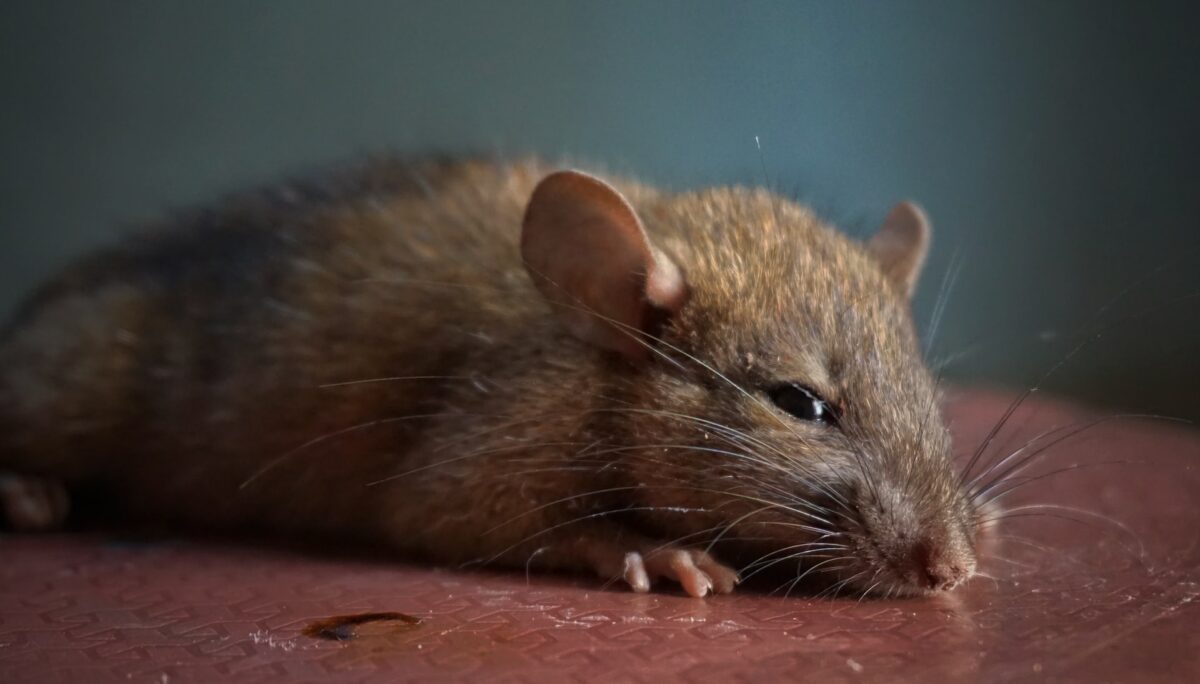
In conclusion, the presence of rat droppings in your home is a serious issue that should not be taken lightly. Not only can it be a sign of a larger infestation, but it can also pose a health hazard to you and your family.
It is important to be aware of the signs and symptoms of a rat infestation and to take immediate action if you suspect that one is present in your home.
Remember, prevention is always better than cure when it comes to rat infestations. Make sure to keep your home clean and free of clutter, store food in sealed containers, and seal any holes or gaps in your home’s exterior to prevent rats from entering.
If you do find evidence of a rat infestation in your home, don’t hesitate to call a professional pest control service to help you eliminate the problem. Don’t let the pests win!
Thank you for reading this article! If you’re facing a rat infestation you should take a look at our post about Killing Rats With Salt.
- Chicago Cat Jumps From 5th Floor of Burning Building and Survives - April 22, 2024
- The Cruelest Contest in the World: Rattlesnake Round-Ups - April 21, 2024
- Rare Footage: Wild Fox and Pet Cat Play-Date - April 21, 2024

